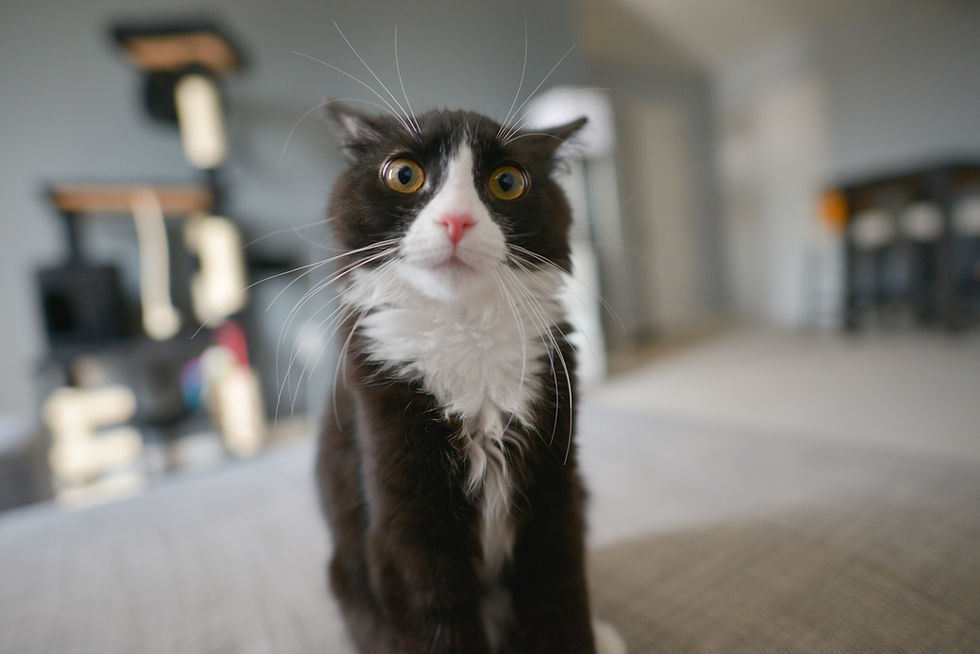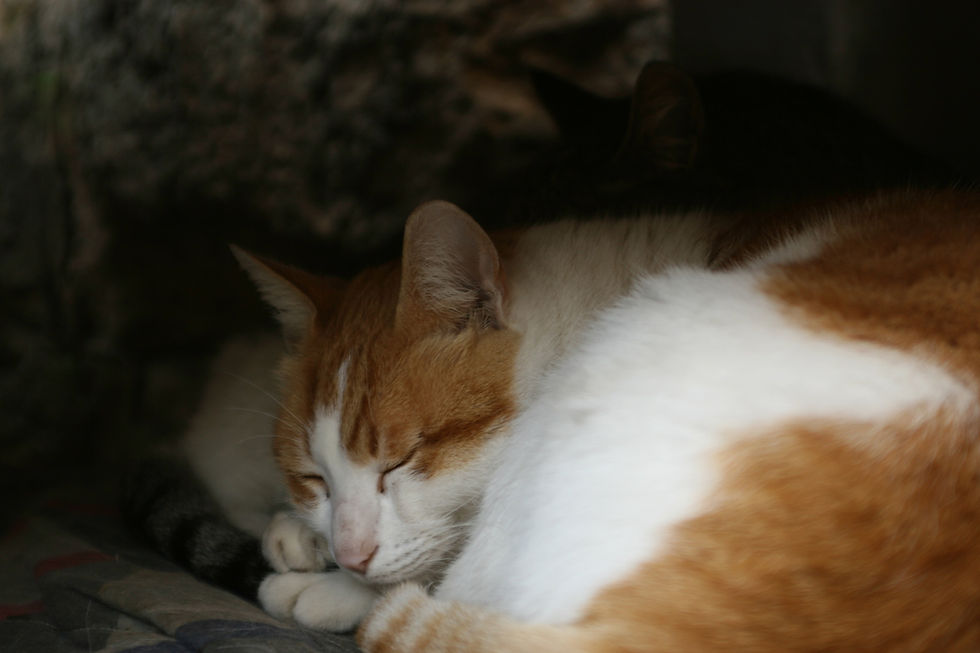
Weight loss is a common feline problem, particularly in senior kitties. Figuring out if your kitty is losing weight may be reliant on what you feel (rather than what you see). This is because a plush feline hair coat can readily mask how svelte or thin your cat is becoming. Note if your kitty feels “bonier” during grooming or petting and pay attention if your normally hefty feline friend is feeling light as a feather when you pick her up. Even if your cat’s appetite and behaviour appear completely normal, unexplained weight loss should always be addressed with your veterinarian. The more common causes of feline weight loss are described below. Not enough food Weight loss occurs when too few calories are being consumed. Some of the more common reasons cats will cut back on their food intake include:
A painful problem in the mouth such as a growth or dental disease.
Competition at the food bowl created by other cats or a sneaky dog.
Inability to get to the food bowl. For example, the kitty that can no longer jump up onto the food counter.
Disinterest in the type or brand of food being served. Finicky kitties will go for days, if not weeks, without eating a bite.
Stress or anxiety — some cats quit eating in response to environmental stressors such as moving to a new household or the introduction of a new pet or human into their lives.

Gastrointestinal tract disease Gastrointestinal diseases can prevent normal digestion and/or absorption of nutrients, resulting in weight loss. Examples of the more common feline gastrointestinal ailments include:
Intestinal parasites
Inflammatory bowel disease
Pancreatitis and cancerous processes.
While tapeworms are quite common in cats, rarely if ever are they a cause of weight loss. This is simply on old wives’ tale! Diabetes mellitus Diabetic cats often appear to be “starving in the midst of plenty.” In spite of a voracious appetite, they drop weight quite rapidly. This is because diabetes causes an inability to properly process and utilize the calories the kitty consumes.

Hyperthyroidism Many older kitties develop hyperthyroidism, a condition in which the thyroid glands produce an excess of thyroid hormone. While this disease can produce a variety of symptoms, what all hyperthyroid cats have in common is weight loss. This is because the excess thyroid hormone amps up the metabolic rate causing more calories to be burned. Organ failure Weight loss commonly occurs in response to dysfunction or failure of a vital internal organ such as the heart, liver, or kidneys. The weight loss is typically a result of a decreased appetite. Certain types of benign and malignant tumours are notorious for causing weight loss. This is because some cancer cells consume calories, virtually robbing the kitty of nutrition.Tumours

If you have any questions or concerns, you should always visit or call your veterinarian – they are your best resource to ensure the health and well-being of your pets.
Author: Dr. Nancy Kay, DVM, DACVIM

